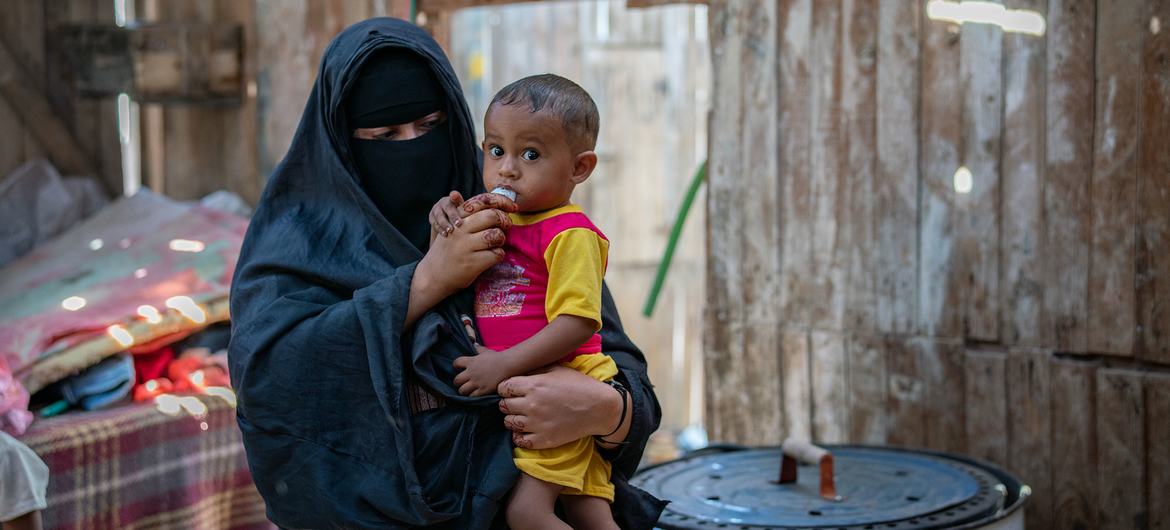
An infant eats supplementary food at a WFP distribution point in Mokha, North Yemen (WFP/Hebatallah Munassar)
Last updated on: 18-08-2024 at 9 PM Aden Time
Taiz (South24)
Four districts in Yemeni government-controlled areas face extreme famine risk, with acute malnutrition levels also rising sharply, according to a recent Integrated Food Security Phase Classification (IPC AMN) report.
These districts, which include Mawza and Al-Mokha in Taiz Governorate, and Hays and Al-Khokha in Hodeidah Governorate, have reached IPC AMN phase 5, the most critical phase indicating an imminent humanitarian emergency.
According to the report, acute malnutrition in these areas has risen sharply, exceeding 30%, especially among children.
The report said that the number of children suffering from acute malnutrition has increased by 34% compared to last year. Among them, more than 18,500 children under the age of five are expected to suffer from acute malnutrition by the end of this year.
In addition, the report noted that about 223,000 pregnant and lactating women are expected to suffer from malnutrition in 2024.
According to the report, the sharp rise in malnutrition is attributed to the compounding effects of disease outbreaks (cholera and measles), rising food insecurity, limited access to safe drinking water, and economic deterioration.
The report explained that 117 districts in areas controlled by the Yemeni government are expected to suffer from “serious” levels of acute malnutrition (IPC Phase 3+) during the period July to October 2024.
“The report confirms a worrying trend of acute malnutrition among children in South Yemen,” said UNICEF Representative in Yemen Peter Hawkins. “To protect the most vulnerable women, girls and boys, investing in and scaling up prevention and treatment efforts is more important than ever,” said Dr Arturo Pesigan, WHO Representative to Yemen.
“The high level of acute malnutrition among children under 5 in Yemen also signals that diseases are a cause for concern,” said Dr Arturo Pesigan.
Pesigan called on humanitarian actors and the international community to “take immediate action to protect the future of Yemen’s children.”
The Integrated Food Security Phase Classification (IPC) team is made up of 15 UN agencies and humanitarian organizations working in Yemen with funding from the European Union, the United States and the United Kingdom.
The report did not address hunger conditions in the Houthi-controlled areas, apparently due to lack of access. Since the past few months, the rebels have launched a campaign against UN agencies and aid groups, detaining dozens of workers, accusing them of espionage.
South24 Center